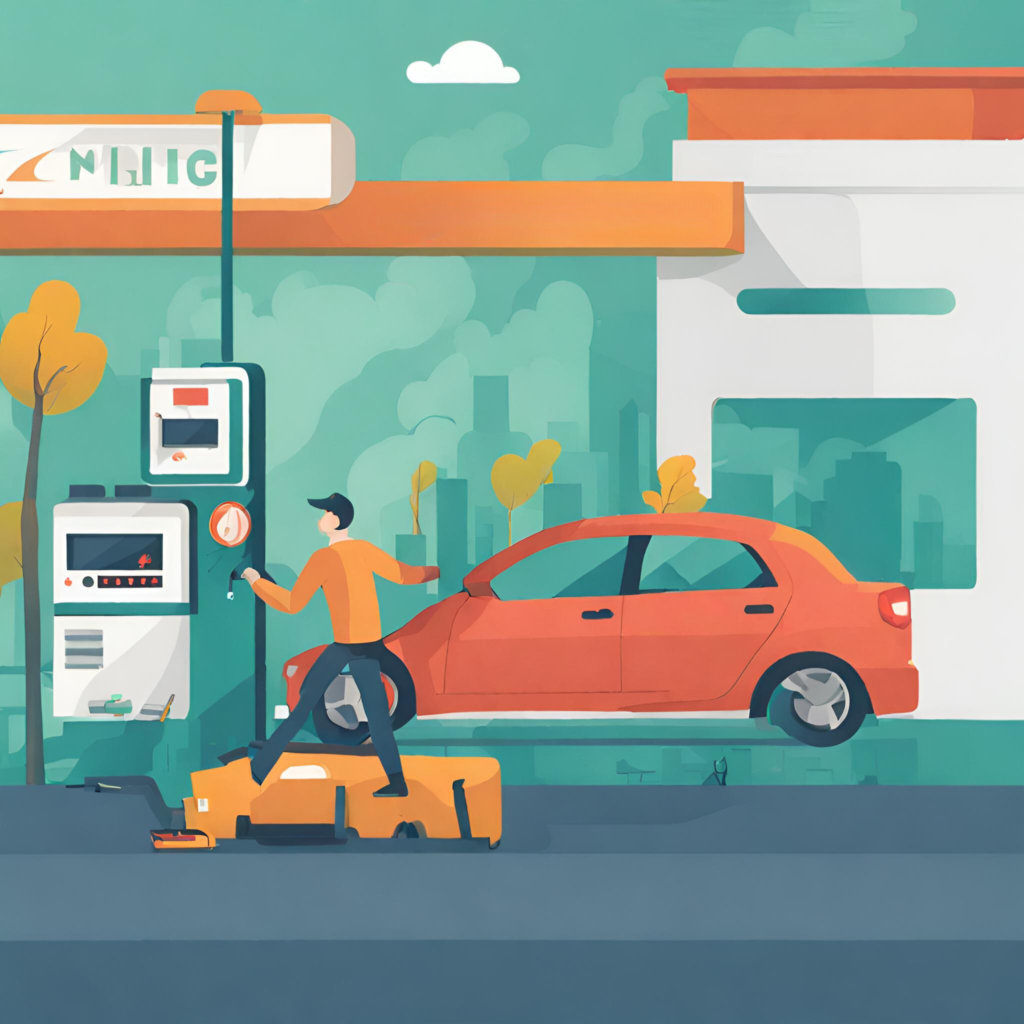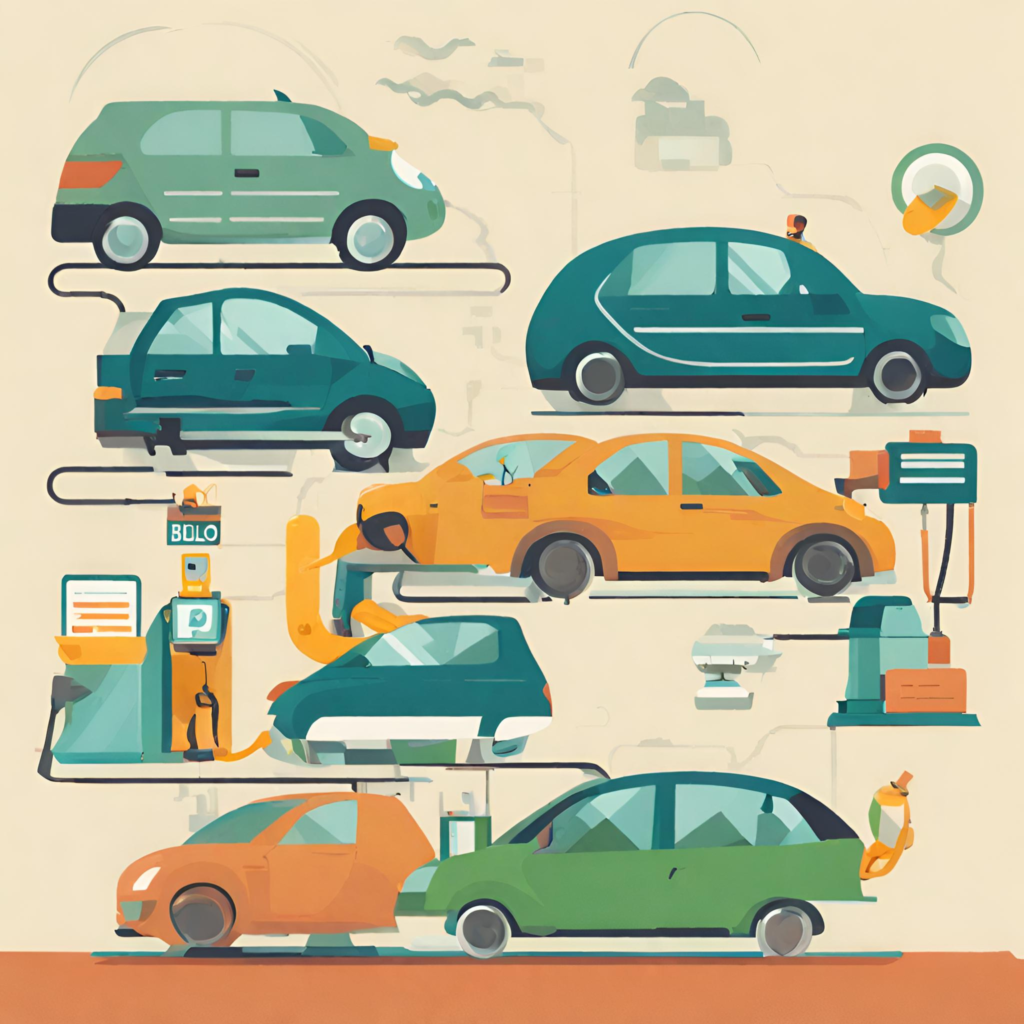In an era of rising fuel prices, maximizing the fuel efficiency of your vehicle is not just an environmental concern but a crucial budgetary consideration for daily commuters. Efficient fuel use can lead to significant savings over time, making a noticeable difference in your monthly expenses. This article aims to provide practical advice on how to enhance your vehicle’s fuel efficiency, ensuring your commute is as cost-effective as possible.
Understanding Fuel Efficiency
Fuel efficiency, simply put, is getting the most out of every gallon of gas your vehicle consumes. It’s a balance of maintaining your car in top condition and adopting driving habits that minimize unnecessary fuel use. Beyond the immediate benefit of cost savings, optimizing fuel efficiency also contributes to reducing your carbon footprint, aligning with a more environmentally responsible approach to commuting.
Regular Vehicle Maintenance for Optimal Performance
One of the most straightforward methods to ensure optimal fuel efficiency is through regular vehicle maintenance. Keeping your car in good working order not only prolongs its life but also enhances its fuel efficiency:
- Engine Health and Oil Changes: A well-maintained engine runs more efficiently. Regular oil changes, using the correct grade of oil as recommended by your vehicle manufacturer, can improve gas mileage.
- Tire Pressure and Alignment: Properly inflated and aligned tires reduce rolling resistance, which can significantly improve your vehicle’s fuel consumption. Check your tire pressure monthly and get regular alignments as needed.
- Air Filter Replacement: A clean air filter allows for better airflow to the engine, improving its efficiency and thereby enhancing fuel economy.
Driving Habits that Enhance Fuel Economy
Your driving style has a substantial impact on how much fuel your car consumes. Implementing a few strategic changes can result in noticeable savings:
- Smooth Acceleration and Braking: Sudden starts and stops consume more fuel. By accelerating gently and allowing the car to gradually slow down, you can reduce fuel usage.
- Maintaining a Steady Speed: Consistent speed, especially on highways, is key to fuel efficiency. Avoiding unnecessary speed fluctuations can save gas.
- Using Cruise Control: On long stretches of road, using cruise control can help maintain a constant speed, reducing the need for repeated acceleration and braking, thus saving fuel.

The Role of Technology in Fuel Efficiency
Advancements in automotive technology have introduced various tools to aid in fuel efficiency:
- Fuel-Efficient Vehicles: Modern vehicles are often designed with fuel efficiency in mind. Considering a hybrid or a model known for its fuel economy can be a wise long-term investment.
- GPS for Optimal Routing: Utilizing GPS technology can help in finding the most efficient routes, avoiding traffic jams, and reducing idle time, all contributing to better fuel usage.
Planning and Combining Trips
Efficient trip planning is another effective strategy for reducing fuel consumption. By consolidating errands and appointments into fewer trips, you can significantly cut down on the total distance traveled and, consequently, fuel usage. Carpooling or choosing alternative methods of commuting, such as public transportation or cycling, on certain days can also substantially decrease your weekly fuel expenses.
Weight Reduction and Aerodynamics
Excess weight in your vehicle can lead to higher fuel consumption. Removing unnecessary items from the trunk or backseat, especially heavy objects, can improve fuel efficiency. Additionally, understanding your car’s aerodynamics is vital. For example, using roof racks only when necessary or removing them when not in use can reduce air resistance, thus enhancing your vehicle’s fuel efficiency.
Myths and Misconceptions About Fuel Efficiency
Several myths surrounding fuel efficiency can lead to misconceptions about saving fuel. For instance, the idea that premium fuel always improves efficiency is a common misconception; most vehicles are designed to run efficiently on regular gasoline unless otherwise specified by the manufacturer. Another myth is that idling uses less fuel than restarting the car. Modern vehicles are designed to be more efficient, and prolonged idling actually wastes more fuel than turning off the engine and restarting it when ready.
Conclusion
Adopting these fuel-saving strategies can lead to a significant reduction in your commuting expenses. Regular maintenance, conscious driving habits, efficient use of technology, thoughtful trip planning, and an understanding of your vehicle’s needs can all contribute to maximizing fuel efficiency. By implementing these techniques, not only do you save money, but you also contribute to a more sustainable and environmentally friendly approach to daily commuting.



